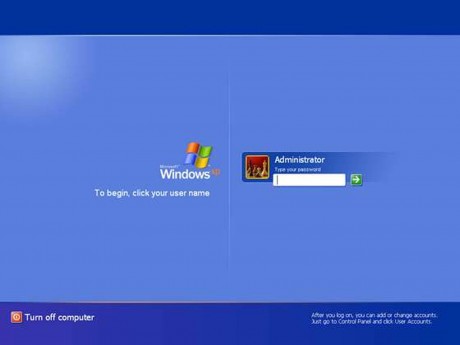
OVER the past few weeks I have been asked by customers about security on laptops concerning document security and cloud backup.
After sitting with the client we discovered that we need to start at the bare essentials of creating a windows logon password. With this, I though it appropriate to reiterate a pass article on this subject.
Basic password protection
Again and again, I see so many laptops and computers without the bare bones of a password to protect their important files on their systems. From the computer starts until the desktop appears many users have no passwords to protect access to their account. What does this mean?
Simply put, this leaves the system open to all prying eyes and potentially cause embarrassment, personally or financially.
In terms of personal embarrassment we all have documents that are important and sensitive to us and we never ever think that anyone else will ever see them.
Imagine someone that records their daily thoughts on a Word document. Would they like other people reading their personal emotions throughout their challenging lives?
Or worse if an employee or an employer had all the personnel files that had all employees’ details such as date of birth, PPS no, address and more. What people on the black market could do with this information in a matter of minutes could cause trouble of mistaken identity and maybe fraud.
Recently a study was carried out by SplashData on the type of passwords people were using to block access to computer, personal emails and banking logins and found out that many used easy to crack passwords.
Some of the passwords are as follows listed from most common first.
1. password
2. 123456
3. 12345678
4. qwerty
5. abc123
6. monkey
7. 1234567
8. letmein
9. trustno1
10. dragon
How to safely secure your website logins, access to online backup and important files?
1. At least have a password to block access to the computer. When the user logs in, they are faced with a Welcome screen asking for password. Always use a strong password that has at least one number and one special character such as “?”
2. Never use the same password for all email and website login details. E.g., your dog’s name Bailey for all shopping online sites, email accounts, bank accounts and many more. If the hacker got access to one password, then to open all other accounts will be easier.
3. Encrypt important files with Encryption somewhere. There are vast amounts of software available online to carry this out and many of them are free. The most popular free tool to encrypt data is TrueCrypt.
4. Always use up-to-date Internet Security software to keep hackers out whilst connected to the internet. Some viruses can cause total deletion of all files on any system
5. Backup data either back using an external hard drive or using an online backup service. But do not fall into the trap of “backing” up all files to an external hard drive and not having the original files.
The idea begin “backing” up, is to have a backup of the original files, in case the originals get lost. I see people that store everything on external hard drives or USB pen drives and then lose their drives.
This is not a backup system if the backup is not a copy of the original.
6. If carrying a laptop from place to place, remember to look after it and not to leave it behind.
Students all know the dangers when they leave the computer room, forgetting the USB pen drive in a computer.
All their assignments reside on the stick and now someone can copy the assignments and maybe format the pen to use for themselves.
This may all seem trivial to many people, but it’s only when something goes wrong we wished we had of done something. Don’t be caught out and ill prepared.
If you have any ideas please comment or email Help@Cybersafetyadvice.com
To catch up on any missed articles written by Niall Mulrine of Pc Clean, go to www.PcClean.ie and www.CyberSafetyAdvice.com
Receive quality journalism wherever you are, on any device. Keep up to date from the comfort of your own home with a digital subscription.
Any time | Any place | Anywhere










